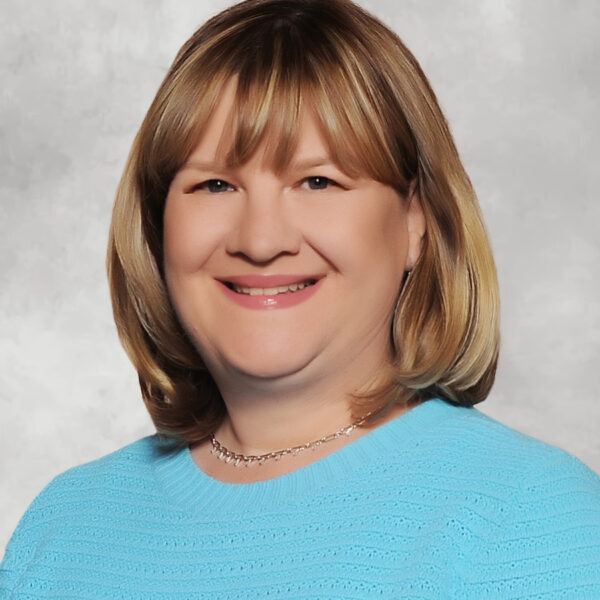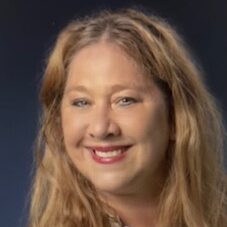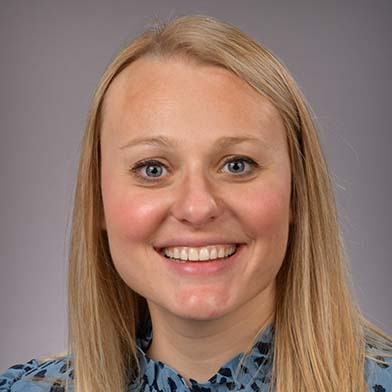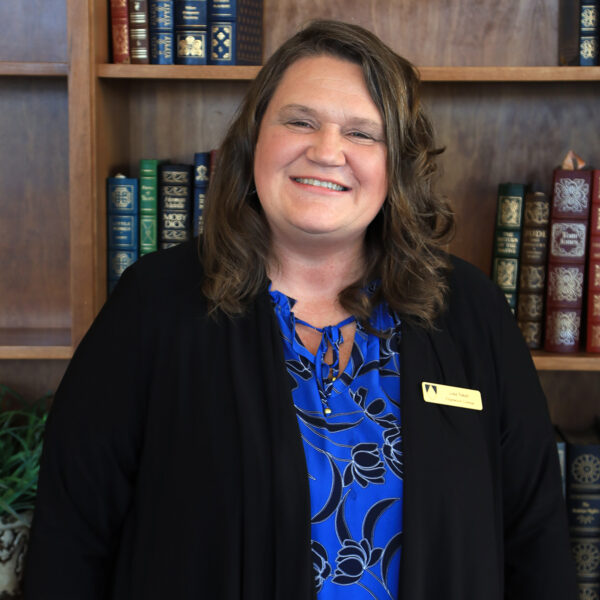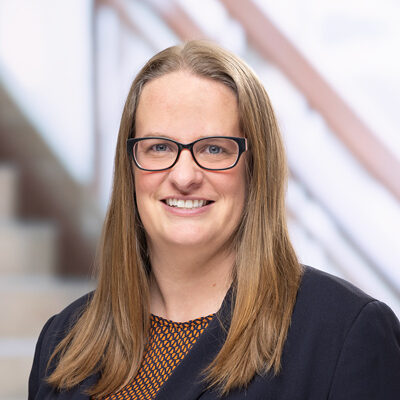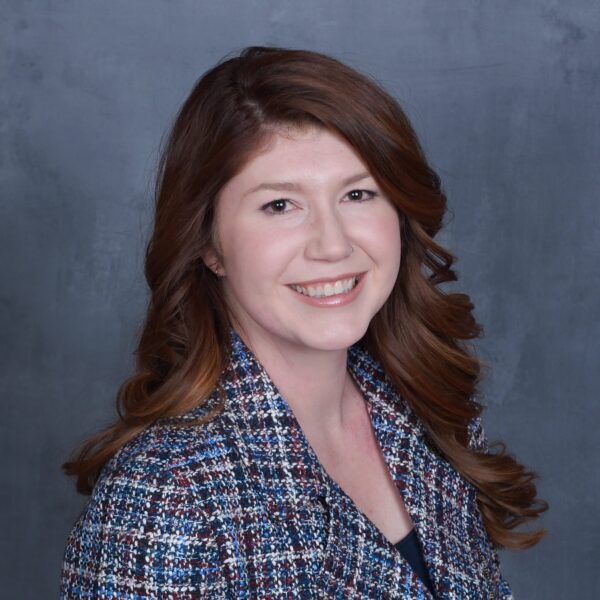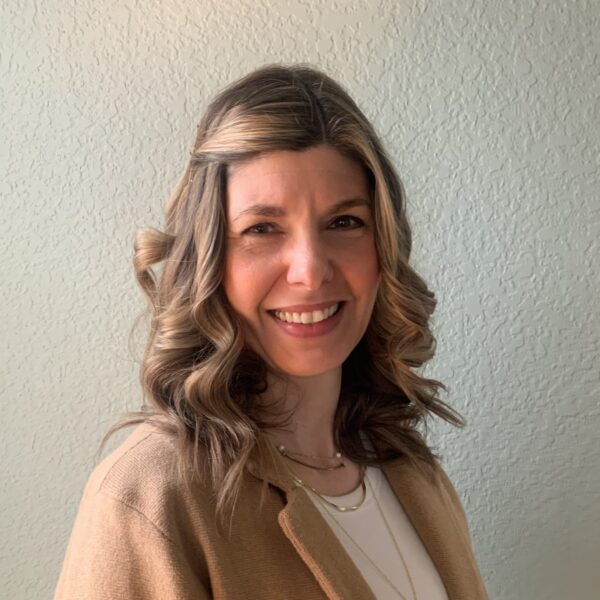Doctorate of Occupational TherapyHenry Predolin School of Nursing, Business, Education, and Health Sciences
Discover and pursue what inspires you as an Occupational Therapist
The Edgewood College Doctor of Occupational Therapy (OTD) program helps you achieve your goals faster. You’ll earn your doctorate degree in just two years, preparing you to pursue advanced opportunities in the dynamic and impactful field of occupational therapy. The hybrid program offers you the opportunity to stay in your own community while you pursue your degree.
These are a sampling of courses students will take in the program:
- Neurorehabilitation
- OT Interventions
- Technology in OT
- Wellness and Health Promotion
Our evidence-based curriculum is accelerated and rigorous, providing the knowledge and skills you’ll need to help clients heal as an occupational therapist. The curriculum is delivered online through an advanced, responsive and experiential virtual environment. You’ll travel to the Edgewood College campus in Madison, Wisconsin, each semester for intensive hands-on practice during lab immersions. Fieldwork I and II experiences are where you’ll apply your skills and deliver occupational therapy services to clients. The doctoral capstone is what sets doctoral education apart from the master’s degree. Your doctoral capstone provides in-depth exposure to a specialty area through mentored experiential learning.
Madison, WI
Hybrid
105
August 25, 2025
Attend an Informational Webinar
Join us to learn more about the Doctor of Occupational Therapy (OTD) program at Edgewood College, where you’ll explore our innovative curriculum, connect with esteemed faculty, and discover the impactful clinical opportunities we offer. Register for our upcoming webinar on Wednesday, April 16, 2025 from 6:00 PM to 7:00 PM CST.
Career Outcomes
As an occupational therapist, you can bring positive change every day as you inspire people to achieve their goals. You’ll work with clients in all stages of life and in a variety of settings that may include clients’ homes, schools, hospitals, nursing homes, outpatient clinics, community settings and more. By investing in a Doctor of Occupational Therapy degree from Edgewood College, you’ll begin your work as an OT sooner and with an advanced degree that opens doors to additional professional opportunities. The occupational therapy field will continue to grow over the next decade, with tens of thousands of occupational therapists needed in communities across the country.
With your Doctor of Occupational Therapy degree from Edgewood College, you can pursue meaningful careers as an Occupational Therapist in settings like these:
- Assistive Tech Centers
- Hospice and Palliative Care
- Mental Health Facilities
- Pediatric Clinics
- Private Practice
- Schools
Featured Courses
OTD 811 – Foundations in OT Practice
This course examines the historical foundations, philosophical base, core values, and code of ethics of the profession. Occupation-based models of practice and the Occupational Therapy Practice Framework (OTPF) are examined with a focus on analysis of the domain of occupational therapy. Structured learning experiences facilitate professional development and the transition to professional roles. Includes an experiential lab component.
OTD 812 – Research I: Foundations to Scholarly Review
This course introduces general research principles and evidence-based practice. The student becomes oriented to the University library system and technology resources and becomes familiar with the steps required to develop a research proposal, conduct a research study, and disseminate research results. The student learns to frame evidence-based practice questions, explore methods of obtaining peer-reviewed research to address those questions, and develops beginning competence in the fundamentals of conducting
This course provides students with lecture and laboratory study of human musculoskeletal anatomy. The emphasis is on functional understanding of the clinical application and function of common injuries and conditions related to bones, muscles, and peripheral nerves. The lab portion of this course provides students with the study of musculoskeletal structures through 3-D anatomy software and synthetic human anatomical models for a hands-on experience aimed to enhance lecture material.
Flexible, Connected Learning
Hybrid education offers many benefits, from the flexibility of managing when you complete coursework, to the convenience of living where you choose during your time in the program – whether that’s home or somewhere else. Don’t worry – distance doesn’t deter connection in this program. We’ve put an intentional focus on providing our students opportunities to connect with peers and faculty to form meaningful relationships.
During lab immersions, you’ll travel to and stay in Madison, Wisconsin, and get a chance to explore all this bustling city has to offer. Campus is located just minutes from downtown. Learn more about Madison here.
Fieldwork Education
Fieldwork education is an essential part of creating critical thinking, dynamic occupational therapy students. Fieldwork education supports the process of becoming an OT professional through the mentorship provided by fieldwork educators. It engages students in the real-world context to improve their related strengths, skills, and capabilities. The fieldwork opportunities in Edgewood’s OTD program reflect the phases and foci of the curriculum by preparing students in the traditional, nontraditional, and emerging settings.
This program is a 2-year hybrid, accelerated program consisting of one year of coursework and one year of fieldwork and capstone work. During that time, students will participate in three Level I fieldwork experiences (occurring during lab immersions) and two Level II fieldwork experiences, 12 weeks each at an assigned clinical site. The program design reflects the importance and critical nature of fieldwork experiences for creating knowledgeable, critically thinking, entry-level occupational therapists.
Doctoral Capstone Experience and Project
The capstone process begins following the successful completion of all Year 1 coursework. The process builds on foundational courses, especially those related to research, administration, leadership, program and policy development, advocacy, education, theory, and practice courses. The capstone process creates and enhances the students’ professional skills and abilities, allowing them to acquire advanced knowledge in their chosen area.
There are four phases of the capstone process:
- Development of a scholarly doctoral project, including a literature review, needs assessment, learning contract, supervision plan, and identification of a potential capstone site and expert mentor
- Completion of a capstone project proposal and Institutional Review Board documentation, finalization of capstone site and expert mentor, and poster presentation of capstone proposal
- Completion of 14-week doctoral capstone experience
- Dissemination of capstone project results
Edgewood College OTD Mission
The Dominican values of our founders in 1927, the Dominican Sisters of Sinsinawa, continue to provide the blueprint of our mission today. With our strong reputation of commissioning compassionate difference makers in the health care field, the Doctor of Occupational Therapy program at Edgewood College aligns with our passion for building professional and personal meaning in the world – one student and one experience at a time. Our program emphasizes the values of the College – truth, community, and justice. Our goal is for students to apply what they learn in the program to their own communities to see where occupational therapy can make a difference in the lives of those who are underserved by health care.
Accreditation
The entry-level occupational therapy doctoral degree program has applied for accreditation and has been granted Candidacy Status by the Accreditation Council for Occupational Therapy Education (ACOTE) of the American Occupational Therapy Association (AOTA), located at 7501 Wisconsin Avenue, Suite 510E, Bethesda, MD 20814. ACOTE’s telephone number c/o AOTA is (301) 652-AOTA and its web address is www.acoteonline.org.
The program must have a preaccreditation review, complete an on-site evaluation, and be granted Accreditation Status before its graduates will be eligible to sit for the national certification examination for the occupational therapist administered by the National Board for Certification in Occupational Therapy (NBCOT). After successful completion of this exam, the individual will be an Occupational Therapist, Registered (OTR). In addition, all states require licensure to practice; however, state licenses are usually based on the results of the NBCOT Certification Examination. A felony conviction may affect a graduate’s ability to sit for the NBCOT certification examination or attain state licensure.
Admission Overview
The OTD program admissions process uses both cognitive and non-cognitive traits to evaluate the strength of applicants to ensure more balanced admissions decisions. Non-cognitive traits are demonstrated through things such as work experience, volunteerism, responses to written and video recorded questions, and statements given on the Occupational Therapy Centralized Application System (OTCAS) that show applicant skills as a communicator, collaborator, health advocate, and professional. Cognitive traits or academic elements include undergraduate cumulative grade point average and grades in prerequisite courses. After review, eligible candidates will be invited to interview as applications are evaluated. Only applications submitted via OTCAS will be accepted.
- Completion of a baccalaureate degree in any discipline from a regionally accredited institution. Applicants are required to achieve a minimum of a 3.00 grade point average (GPA) on a 4.00 scale. Individuals with an undergraduate GPA lower than a minimum of a 3.00 will be considered if they achieve a 3.20 GPA or above in the last 60 hours of their undergraduate degree.
- Degree must be completed before the student begins the OTD program. Students must submit a final official transcript to the program indicating degree completion.
- Completion of all prerequisite courses taken at a regionally accredited institution. All prerequisites must be completed before the student begins the program. Applicants must achieve the minimum of a 3.00 GPA on a 4.00 scale, and all prerequisite course grades must be a “C” or higher.
- Students must send the program a final official transcript demonstrating that all courses have been completed.
- Anatomy and Physiology courses should be taken within the last 5 years, unless the individual provides evidence of ongoing work experience keeping the knowledge current.
| OTD Program Prerequisite Courses | General Course Descriptions | Edgewood College Equivalent |
|---|---|---|
| Anatomy and Physiology I & II with labs(8 credits) Required course |
Anatomy and Physiology I with lab (4 credits) Description: The study of the structure and function of the human body – Part I. The course may be 3 credits with a 1-credit lab (if university offers separately). If Anatomy and Physiology are separate courses, then a 3-credit human anatomy course with a 1-credit lab and 3-credit human physiology course is accepted. Anatomy and Physiology II with lab (3-4 credits) Description: The study of the structure and function of the human body – Part II. | BIO 210 – Anatomy and Physiology I (4 credits)BIO 211 – Anatomy and Physiology II (4 credits) |
| Human Development/Lifespan(3 credits) Required course |
An integrated study of the processes and major influences throughout the human experience from the beginning of life through aging (infants, children, adolescents, adults, and older adults). May be offered as a developmental psychology course | PSY 345 – Lifespan Development (3 credits) |
| Statistics(3 credits) Required course |
The course includes descriptive and inferential statistics with the emphasis on drawing meaningful conclusions from data. Topics may include measures of central tendency and dispersion, the normal distribution, z-tests, t-tests, linear regression, and more. | MATH 121 – Statistics (3 credits) |
| Abnormal Psychology(3 credits) Required course |
The course introduces students to a wide range of psychological disorders and conditions of psychopathology, along with contemporary treatment approaches. | PSY 340 – Psychopathology (3 credits) |
| Social Sciences(3 credits) Required course |
Any course will be accepted in psychology, sociology, anthropology, public health, ethnicity, gender studies, religious studies, or philosophy. | Any course in the social sciences (3 credits) |
| Biomechanics or Kinesiology(3 credits) Recommended course |
Introductory courses of either discipline. If no such course exists at the applicant’s university, a general physics introductory course is satisfactory. | PHYS 220 – Intro to Biomechanics (3 credits)PHYS 130 – General Physics (3 credits) |
| Medical Terminology(1-2 credits) Recommended course |
The course covers basic medical terminology associated with body systems & disease in preparation for fields in the health sciences. Emphasis will be placed on root words, prefixes, and suffixes. | BIO 202 – Medical Terminology (2 credits) |
Completion of a minimum of 30 hours of observation of occupational therapy exploration activities (in-person, virtual, or by alternative means to be determined by the program). Applicants must provide evidence of the completion of activities.
- All applications are processed through the Occupational Therapy Centralized Application System (OTCAS). The Edgewood College OTD Program follows the timeline of OTCAS. Each year, OTCAS opens its applications in mid-July, and the cycle remains open until early June of the next year. Each year, the OTD Program will post specific application cycle dates.
- Applicants are to complete an essay by following instructions within the system. They are also required to provide three (3) professional references. One should be an academic recommendation. The other two professional references can be from a volunteer or professional supervisor/manager, an occupational therapy practitioner, or an academic reference. The applicant will request references through OTCAS, and all references are to be submitted through OTCAS. Please note: OTCAS requires applicants to obtain official transcripts of all higher education institutions an individual has attended. Students are required to enter final grades from transcripts as part of the application process.
- Completion of an admission interview. Qualified students will be invited to interview after holistic review of their application materials. Admission to the program is on a rolling basis.
- Demonstration of English language proficiency through the Test of English as a Foreign Language (TOEFL) exam. This is required for applicants for whom English is not their first language or those who have completed a degree and prerequisite courses outside of the United States.
- Demonstration of meeting the OTD program’s Technical Standards for admission.
- Applicants to the OTD program must adhere to all general requirements for admission as established by Edgewood College’s Graduate Admission Requirements: https://catalog.edgewood.edu/content.php?catoid=16&navoid=1246#graduate-admissions
- Health Requirements
- Vaccinations (TB skin test, Tdap – once, current tetanus vaccine, MMR [2 doses or titer], Varicella [2 doses or lab results], Hepatitis B – 3 doses, COVID 19 vaccines and boosters, annual flu vaccination, additional requirements specified by clinical sites)
- CPR certification – All students are required to be certified or recertified in Cardiopulmonary Resuscitation (CPR) for Health Providers by the American Red Cross or the American Heart Association.
- Completion of an approved Drug Screening and Criminal Background Check. Students accepted into the program may require additional testing closer to beginning fieldwork experiences.
Additional Admissions Policies
- Because of the hybrid, accelerated nature of the program and its influence on the curriculum’s course sequence, students admitted to the OTD program are not eligible for transfer of credit, credit for experiential learning, and prerequisite or work experience requirements, with one exception. As described in the section on Prerequisite Courses, Anatomy and Physiology prerequisite courses must be taken within the last 5 years, unless the applicant provides evidence of ongoing work experience keeping the knowledge current.
- Students may receive credit for advanced placement only if these appear on a college transcript and credit is awarded by the institution. For example, Edgewood College has a policy for students to receive credit for previous learning when applying for undergraduate admission: https://www.edgewood.edu/academics/credit/
- The OTD program’s admissions process is an alignment with Edgewood College’s mission and vision, which reflects efforts to recruit and admit a diverse student population: About Edgewood College – Edgewood College – Modern Campus Catalog™
- There are three types of graduate admission statuses at Edgewood College: regular, provisional and contingent.
- Regular Status
The status of regular admission to the graduate programs at Edgewood College is awarded to applicants who meet the requirements for their classification.
- Provisional Status
When applicants have a cumulative entering GPA, computed on the highest degree held at the time of admission, less than what is required by the program, they may be admitted with provisional status. If accorded provisional status, the student must attain a 3.00 GPA for the first nine credits in courses numbered 600 and above taken at Edgewood College, or the student will be dismissed from the College. Applicants must still meet the minimum GPA requirement of their selected program. Please refer to the specific program for minimum GPA and other program specific admission requirements.
- Contingent Status
Contingent status is accorded to individuals who are admissible to the College based upon the admission requirements for his/her program of interest; except that one or more original pieces of admission information (or specific School or department requirements) are missing from the student file. This status is used only in cases where it is clear that the student will be admissible with regular or provisional status when the missing information has been received. Contingent status is applicable for one semester only. Students will not be allowed to register for a second semester while on contingent status.
Cost of Attendance: 2025 – 2027 OTD Cohort
| Tuition | $17,412.50 per term | Six terms | $104,475 |
| Computer | $2500 | One time expense | $2500 |
| Textbooks, learning apps | $3750 | One time expense – Cost dependent on book type (printed versus e-book) | $3750 |
| OT Kit (equipment) | One time expense | $365 | |
| AOTA and State OT Association Membership | $115 annually | Two years | $230 |
| Travel* | $1640 | Ten campus visits | $14,600 |
| Total | $125,920 |
Tuition is reviewed by the Edgewood College Board of Trustees annually and may be subject to annual increases.
*Travel expenses for attendance at lab immersions are the responsibility of the student. Costs will vary, depending on the type of transportation required to and from Madison, Wisconsin, housing, meals, and other miscellaneous expenses. Students in the OTD program will travel to six lab immersions in Year 1 and three in Year 2. Students are encouraged to plan and budget accordingly. We recommend sharing expenses with other students in the cohort.
Faculty Spotlight
Related Programs
-
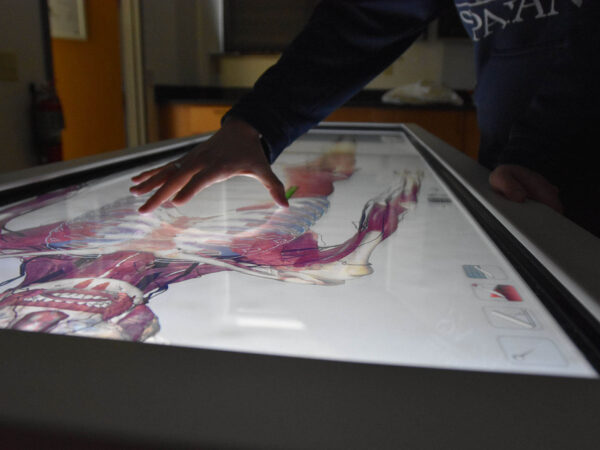
On-campus
Bachelor of Science in Health Sciences -

On-campus
Bachelor of Science in Neuroscience -
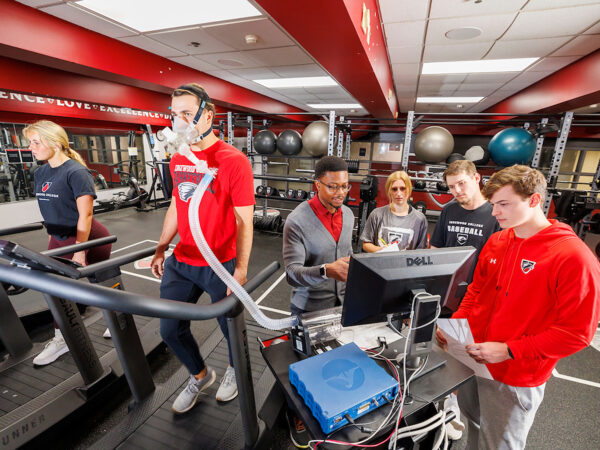
On-campus
Bachelor of Science in Exercise Science
Frequently Asked Questions
Are there additional admission requirements for international students?
Demonstration of English language proficiency through the Test of English as a Foreign Language (TOEFL) exam. This is required for applicants for whom English is not their first language or those who have completed a degree and prerequisite courses outside of the United States.
Do students need to pass a background check for this program?
Completion of an approved Drug Screening and Criminal Background Check. Students accepted into the program may require additional testing closer to beginning fieldwork experiences.
Is an interview part of the admission process?
Qualified students will be invited to interview after holistic review of their application materials. Admission to the program is on a rolling basis.
Are there any post admission requirements for this program?
- Health Requirements
- Annual physical exam
- Vaccinations (TB skin test, Tdap – once, current tetanus vaccine, MMR [2 doses or titer], Varicella [2 doses or lab results], Hepatitis B – 3 doses, COVID 19 vaccines and boosters, annual flu vaccination, additional requirements specified by clinical sites)
- CPR certification – All students are required to be certified or recertified in Cardiopulmonary Resuscitation (CPR) for Health Providers by the American Red Cross.
- Completion of an approved Drug Screening and Criminal Background Check. Students accepted into the program may require additional testing closer to beginning fieldwork experiences.
How can I learn more about the OTD program?
We invite you to attend an informational webinar to learn more about the Doctor of Occupational Therapy (OTD) program at Edgewood College, where you’ll explore our innovative curriculum, connect with esteemed faculty, and discover the impactful clinical opportunities we offer. For a list of upcoming webinars and to register, please click here.
Additionally, our OTD Student Manual is available for prospective students to learn more about the program.
2025-27 Cohort
Application Deadline: June 6, 2025
Virtual Orientation: August 14-16, 2025
Program Start Date: August 25, 2025
